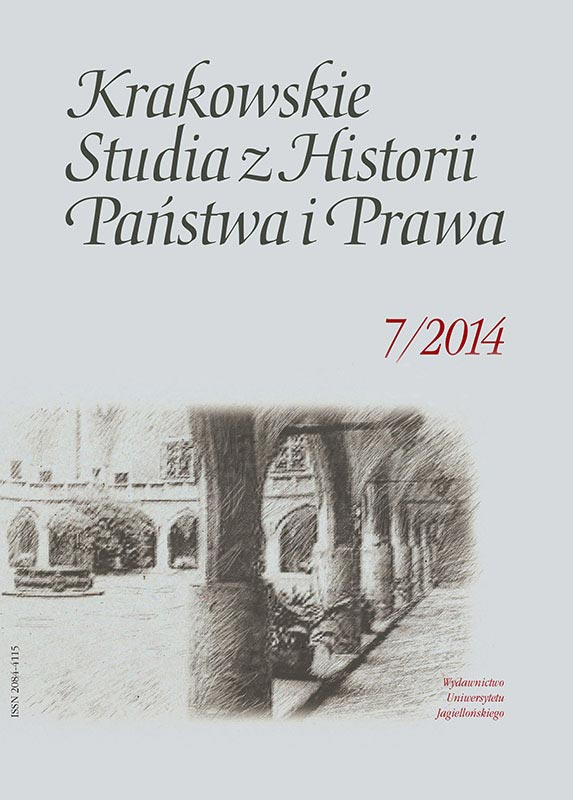Themis clothed in Ermine. Some Remarks on the Jurisdiction Excercised by the Rector of Krakow Academy
Themis clothed in Ermine. Some Remarks on the Jurisdiction Excercised by the Rector of Krakow Academy
Author(s): Dorota MalecSubject(s): Law, Constitution, Jurisprudence, History of Law
Published by: Wydawnictwo Uniwersytetu Jagiellońskiego
Keywords: Jagiellonian University; Krakow Academy; university statutes; university jurisdiction; rector; rector’s court; Kazimierz Wielki; Władysław Jagiełło; canon law; Roman law; customary law
Summary/Abstract: The scope of the jurisdiction of the Rector of the Krakow Academy was determined by the foundation privileges of Kazimierz Wielki and Władysław Jagiełło; the latter had subsequently been extended by the university statutes as well as by the royal and urban documents. The judicial competence of the Rector, named in legal documents as the “highest judge”, referred above all to members of the university corporation, but also to people remaining outside this structure (e.g. in some cases to the Krakow townsmen). The Rector assumed the jurisdiction the moment he had taken an oath. The students and professors of the Krakow Academy were also subject to the Rector’s judicial authority, the moment they had taken an oath. The subject range of the Rector’s jurisdiction comprised penal cases, including those relating to disciplinary issues. The jurisdiction also extended to civil law: confirmation of documents, certain institutions of inheritance law and even civil contentions relating to copyright law. The Rector adjudicated on the basis of canon law, Roman law and customary law as well as on the basis of the university statutes. The procedure was based on a shortened and simplified mode derived from canon law. The trial was of an adversarial nature and consequently, the penal and civil proceedings did not differ much one from another. All proceedings were based on the principle of oral testimonies. The hearing of evidence was based on a legal theory of evidence. The fundamental type of evidence was an oath, but other forms of evidence were also allowed, including testimonies of women witnesses. The majority of cases adjudicated by the Rector concerned the students of the Academy; proceedings against professors were also conducted. The most common offences concerned disciplinary matters, offences against morality, neglect of duties, theft of books, fights. Among the adjudicated punishments there predominated fines although one could also come across penalties of temporary imprisonment or church punishments, such as excommunication. The students and professors were protected by immunity, thanks to which they could not be held responsible before municipal and magistrates courts. As a matter of rule, one could not appeal against the verdict passed by the Rector, although there were other legal measures that enabled one to avoid punishment. During the reforms implemented by H. Kołłątaj, attempts were made to broaden the extent of the Rector’s judicial competence, yet the latter had never been implemented on a wider scale. The Rector’s jurisdiction was eventually abolished by the Austrian authorities.
Journal: Krakowskie Studia z Historii Państwa i Prawa
- Issue Year: 7/2014
- Issue No: 1
- Page Range: 147-157
- Page Count: 11
- Language: English

